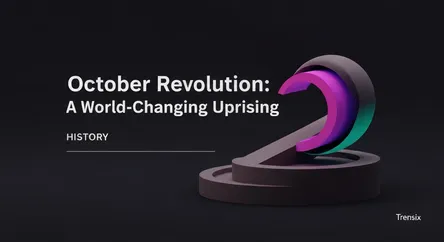History
October Revolution: A World-Changing Uprising

A guide to the 1917 Bolshevik uprising in Russia that overthrew the provisional government, leading to the creation of the Soviet Union.
What is it?
The October Revolution was the second major Russian revolution of 1917. On November 7, 1917 (October 25 in the old Julian calendar), the Bolshevik Party, led by Vladimir Lenin, launched an armed insurrection against the ineffective Provisional Government in Petrograd. This nearly bloodless coup d'état successfully removed the government that had been in power since the abdication of Tsar Nicholas II during the February Revolution. The uprising established a new Soviet government, the Council of People's Commissars, with Lenin as its head, marking the end of centuries of imperial rule in Russia.
Why is it trending?
The October Revolution remains a pivotal event in history because it led to the creation of the world's first communist state, the Soviet Union. This ideological shift had immediate and massive global consequences. One of the new government's first acts was to pull Russia out of World War I, which in turn triggered a brutal civil war between the Bolshevik "Red Army" and the anti-Bolshevik "White Army". The revolution's success inspired communist movements worldwide, creating a deep ideological rift between communism and capitalism that would define international politics for the rest of the 20th century.
How does it affect people?
The revolution's impact was immense and long-lasting. For the people of Russia, it led to the establishment of a one-party totalitarian state that suppressed basic freedoms and resulted in millions of deaths through civil war, famine, and political purges, particularly under Joseph Stalin. Globally, it set the stage for the Cold War, a decades-long standoff between the Soviet Union and the West. This ideological conflict fueled proxy wars, a nuclear arms race, and political instability that affected generations across the planet. The eventual collapse of the Soviet Union continues to shape modern geopolitics.